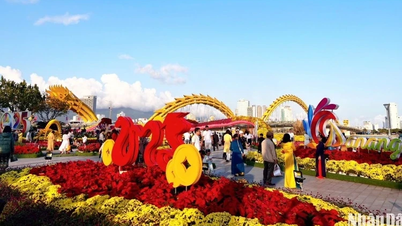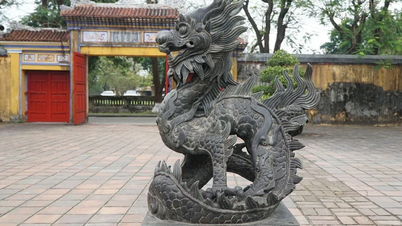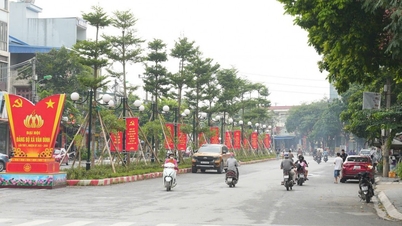Three famous dishes in Hanoi, Nam Dinh and Quang Nam are recognized as National Intangible Cultural Heritage because of their many values from history, knowledge to community connection.
The Ministry of Culture, Sports and Tourism (MCST) on August 9 announced the list of national intangible cultural heritage, in the form of folk knowledge, for Hanoi pho, Nam Dinh pho and Quang noodles.
According to the Ministry, all three intangible cultural heritages were introduced by localities with full values such as representativeness, expressing community and local identity; reflecting cultural diversity and human creativity, being inherited through many generations; having the ability to recover and exist long-term; being agreed upon by the community, voluntarily nominated and committed to protection.
The Ministry of Culture, Sports and Tourism considers pho a popular dish in Vietnamese culinary culture, loved by many people at home and abroad.
According to the introduction of "Pho Hanoi" by the Hanoi People's Committee, the typical dish is pho noodle soup, served with beef and chicken. Cooking techniques, dining space and culture have created a unique mark for Pho Hanoi. Long-standing Pho shops in Hanoi are often not large in scale, with the front of the shop having a Pho preparation counter and often using the sidewalk or the space in the alley to place the dining tables.
Most of the famous pho restaurants in Hanoi have secret recipes, only the owners and their spouses know; others cannot know the dosage and some special spices to put in the broth. The recipe is only passed down to family members or relatives through hands-on training.

Regarding Nam Dinh pho, the Ministry of Culture, Sports and Tourism commented that pho has become the pride of Nam Dinh land and people; affirming the value of the culinary brand through unique features expressed in all stages, from preparation, selection of ingredients, food, methods of making typical pho noodles, processing stages, and completing a delicious bowl of pho, ensuring flavor and nutritional quality.
Nam Dinh Provincial People's Committee said that long-standing pho shops are mainly concentrated in Nam Dinh city and pho street vendors also appeared here for the first time. Selling pho has become a livelihood for many villagers, but most of them serve in big cities. Many people from Nam Dinh have opened pho shops in other provinces, mainly in Hanoi, Hai Phong and Ho Chi Minh City.

Quang noodles are also on the newly announced heritage list. According to the People's Committee of Quang Nam province, the Quang noodles processing profession is currently well preserved and developed, people working in the profession have a stable income, and the risk of extinction is not high.
However, nowadays, many noodle factories use advanced technology lines that are much faster and more convenient, so traditional noodle factories are at risk of shrinking. Young people are less likely to participate in this profession because they are pursuing easier jobs with higher income.
Pho Hanoi is also facing problems as the next generation tends to choose modern jobs instead of selling pho. Hiring outside labor to help sell is also a difficult problem for many shop owners when maintaining the family business.
Regarding Nam Dinh pho, the province's investigation shows that there are about 500 pho shops in the area, but nearly 1,500 households have gone to other big cities to open pho shops.
The recognition of national cultural heritage is a driving force to preserve and promote heritage values. Currently, localities say they have plans to protect and promote the values of newly recognized heritage.
According to the website of the Department of Cultural Heritage, the list of national intangible cultural heritages currently has nearly 500 heritages.
Source




![[Photo] Students of Binh Minh Primary School enjoy the full moon festival, receiving the joys of childhood](https://vphoto.vietnam.vn/thumb/1200x675/vietnam/resource/IMAGE/2025/10/3/8cf8abef22fe4471be400a818912cb85)

![[Photo] Prime Minister Pham Minh Chinh chairs meeting to deploy overcoming consequences of storm No. 10](https://vphoto.vietnam.vn/thumb/1200x675/vietnam/resource/IMAGE/2025/10/3/544f420dcc844463898fcbef46247d16)






























































































Comment (0)